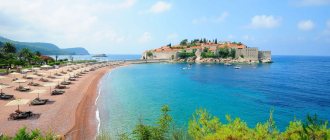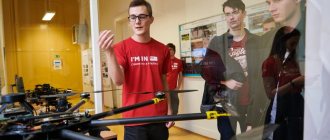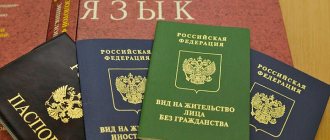- How the higher education system works in France
- How to enter a university in France
- Universities in France
- Higher education in France for Russians
- Second degree
- How to get higher education for free
- Advantages and disadvantages
- Interesting Facts
French higher education is recognized as one of the best not only in Europe, but throughout the world. This country is home to a huge number of universities. But in order to enter a university and become a student, you need to know some nuances.
How the higher education system works in France
This system is presented in the form of technological institutes, higher schools and universities. In France there are more than 80 public universities, and there are private ones. A higher education course can be divided into several courses. The latter is analogous to graduate school. The training stages are as follows:
- Basic - training lasts 2 years.
- Additional. Based on its results, the student receives a bachelor's degree. Requires 3-4 years.
- Master's degree. Lasts one year.
- Postgraduate studies. Lasts up to four years.
First cycle
It is called a “short” cycle of higher education, which is attended by high school graduates. It lasts two years and prepares students to obtain a DEUG (diploma of general university education indicating the relevant field of knowledge), after which real and quick employment is possible.
Training can be completed in departments of higher technical education in lyceums in France (diploma of higher technical education - BTS (brevet de technicien superieur); in technological institutes (university technological diploma DUT (diplome universitaire de technologie); in universities that train engineers (diploma of natural science and technical university education - Diplome d'Etudes Universitaires Scientifiques et Techniques, DEUST); in specialized schools in the fields of health and social services.
Second cycle
Designed to expand and deepen the knowledge acquired during the first two years of study at a French university and prepares for obtaining a license within one year after DEUG and maitrise (year after licence).
After 1 year, a licentiate diploma is issued, after 2 years, a master’s diploma is issued. An engineering diploma usually requires five years of training, which can be carried out according to two schemes: continuous five-year training based on secondary school or three-year (final) training based on the first cycle.
Third cycle
It involves an in-depth study of the chosen specialty and is accompanied by independent scientific work, the topic of which applicants with a maitrise degree are required to formulate before entering the program. Those who successfully complete this stage are awarded a Diploma of Specialized Higher Education (DESS), which is a professional diploma, or a Diploma of Advanced Education (DEA), which allows them to continue scientific research in doctoral studies and obtain a doctorate degree (Doctorat de Nouveau Regime) (corresponding to the Russian Candidate of Sciences).
It is important to note that medical education is not divided into cycles. After six years of study in hospital medical centers, students undergo a competition for a specialized internship, which allows them to become a medical specialist, or receive a diploma in “general medicine” through a competition after two years of study.
The student chooses the bar for himself. Some complete their studies after receiving a basic diploma, while others choose to enroll in graduate school. Higher education in France is represented by public and private institutions. State schools provide free training not only to French citizens, but also to foreigners. However, a state fee must be paid every year: it varies from 100 to 800 euros depending on the university. If it belongs to the private category, training can be paid, and can reach several thousand euros per year.
How did the system develop?
Universities in France
An important moment in the history of the social system of France is the 80s of the 19th century. Then the “Ferry Law” is issued. According to it, from 6 to 12 years of age, education becomes compulsory for everyone. Later, until the age of 16.
Previously, after primary school, most young people went to vocational courses. Only wealthy families could afford to continue their education and send their child to university. It was much more profitable to quickly get a profession and start working.
If in 1910 only 40,000 people entered universities, then by 1980 already 850,000 people began higher education annually. By 2003, the number is growing, now we are talking about 2,300,000 people.
How to enter a university in France
The applicant must decide in what language the training will take place. Programs are available in English and French. It is necessary to confirm knowledge of the language. If you choose French, you must pass the DELF/DALF exam. Which one is required is specified according to the chosen direction. Knowledge of the language must be at least level B1. To confirm your English proficiency, take the IELTS or TOEFL exam. You need to score 6.0–7.0 points in IELTS or 78–95 points in TOEFL. To live in this country you need to know French.
In addition to the above certificates, a certificate or diploma is submitted to the admissions committee. The certificate is required for a bachelor's degree. The diploma is attached to the general documents upon admission to the master's program. They are translated into a foreign language and certified by a notary.
The French do not take entrance exams, but people from Russia will have to pass entrance tests. They are published on the university website. Additionally, you need to go through an interview, during which research assistants try to find out the applicant’s plans for the future and his goals in his professional activity.
Some universities require applicants to write a letter of motivation, letters of recommendation, which also briefly outline the goals of admission and the reasons for choosing a particular specialty. Submitted documents are reviewed until a certain date, then applicants are sent an answer whether the university accepts it or not. It is also better to choose French to write a motivation letter.
Teaching French in France
Many applicants from Russia, even before admission, leave for France to study French. You can learn the state language here much faster and easier than in your homeland. Those who have completed language courses and passed the final exam can safely enter a university in any French-speaking country.
Selection into groups is carried out based on the results of testing aimed at identifying the level of knowledge of the French language. The required level is minimum (Eléméntaire A1). For comparison, admission to a university requires the Indépéndant level (B1). The number of teaching hours ranges from 15 to 35 per week. The average cost of language courses is from 200 to 500 € per week.
The level of language teaching is quite high. Each listener receives an individual approach, because the groups are usually small. Excursions are often carried out to get acquainted with the sights and culture of the country. If you are already a student at a French university, Campus France can reimburse course costs up to 1,534 euros.
When preparing to study at any French university, it is worth taking language courses in your home country. Even if the training is conducted in English, this will help to successfully adapt to a French-speaking environment. Knowledge of English is not common among the French, as is the case, for example, in Scandinavian countries. In the simplest everyday situations, you often have to resort to the help of Google translator. There are also problems with finding a job: without a confident knowledge of the state language, it is difficult to find one here. This even applies to international corporations operating in France.
Universities in France
Studying at French universities is considered prestigious throughout the world. The most famous establishments in the country are :
- Paris Sorbonne University (Universite de Paris). Founded in 1253. It offers many areas of study, ranging from tourism and social specialties to economics and finance. Education is free, you need to pay a fee, which differs depending on the faculty. On average it is 300-500 euros per year.
- University Paris-Dauphine. This is an economic university founded in 1968. Almost 10 thousand students study here. This is a non-state university, for a year of study you need to pay 10 thousand euros. It is one of the most prestigious.
- University of Montpellier. It is state-owned; for a year of study you need to pay a fee, which is 100-300 euros. Medicine, natural sciences, and humanities are taught here.
- University of Strasbourg (Université de Strasbourg). To study, it is enough to pay only a fee of 200-400 euros. Founded in 1538. Here you can study chemistry, biology, geology, astronomy, sociology and law.
- University of Picardie. Founded in 1970. Refers to state universities, tuition is free. The fee varies depending on the chosen destination and is 300-400 euros per year.
- University of Lyon (Université de Lyon). Is one of the largest. There are about 127 thousand students. Medicine, natural sciences, and philology are taught here. law and economics. A huge number of specialties are represented. It was founded in 1809 and is a government agency. The amount of the fee needs to be clarified, it all depends on the chosen specialty. Usually does not exceed 500-600 euros per year.
- University of Nantes (Université de Nantes). Located in the city of the same name, founded back in 1460. Three main areas are represented: humanities, natural sciences, and law. Programs are presented for training bachelors, masters, and graduate students. This is a state university, which means paying only a fee of 100-500 euros.
How to choose a program and university in France
- Direction of study. Look not for a university, but for a faculty. Each university has its own specialization. For example, future doctors should take a closer look at the University of Pierre and Marie Curie, engineers at the École Polytechnique, historians and philosophers at the École Normale Supérieure or the University of Paris 1, and economists at HEC Paris.
- Program language. You can study in France without knowing the local language. Universities offer programs in English, but they are often only available to master's and doctoral degrees.
- Cost of education. This parameter depends on the type of university. An academic year at a higher school (grande école) costs 4 times more than at a university. The average price is 9,741 USD/year.
- Admission requirements. It is almost impossible to enter higher schools without two-year preparatory courses and difficult entrance tests. There are no exams at public universities. Requirements for average score - GPA - and language level are also different. In grande école it is desirable to have 5.0 and French C1. GPA 4.2 and French B2 are suitable for university.
Higher education in France for Russians
The admission procedure for Russians does not differ from the admission conditions for the French. Documents required:
- Photocopy of pages 3 and 4 of the passport.
- Application for admission. (The application form is available on the university website).
- Certificate of language proficiency. (TCF, TEF, DELF, TOEFL, IELTS).
- Birth certificate. Translated into English or French upon request. (Certificat de naissance).
- Certificate or diploma with grades. It is advisable to translate it into French. (Diplôme de fin d'études secondaires complètes, Diplôme de Bakalavre).
Documents in French:
- Resume - CV.
- Motivation letter - Lettre de motivation.
- Letters of recommendation - Lettres de recommandation.
- French language exams: TCF, TEF, DELF, DALF.
The main difference is confirmation of language knowledge. Otherwise, the procedure is similar: documents are submitted, then the applicant undergoes an interview. If the faculty provides entrance examinations, he prepares for them and passes them. Based on the results of the interview and the documents provided, the university decides whether to enroll the applicant or not. Usually after 2-3 months a response comes from the institution, which states whether the citizen has entered or not.
Tuition prices vary. If a private educational institute is chosen, on average a person will spend 10-15 thousand euros per year. If you choose a state university, there is no tuition fee. Only a fee of 200-800 euros per year is paid. It is different for each institution. The more prestigious the establishment, the higher the fee.
In addition to tuition fees, the student will have to pay for housing. Many establishments provide dormitories. They pay 200-300 euros per month. Some students rent housing, but this is more expensive, costing 500-700 euros per month. On average, 300-500 euros per month will be spent on food, but it all depends on the person’s preferences and the amount of food consumed. Some students actively move around the city during their studies. you will need a travel pass. Its cost is 50-100 euros per month. In large cities it is more expensive.
Cost of studying at French universities
The total cost of studying in France for immigrants from the Russian Federation and the CIS ranges from €3.5 thousand to €25 thousand per year. In addition, the student needs to pay for housing, food, transportation, internet, etc.
Free education in France
The education system in France is built on the principles of social protection of the rights of children and young people to learn. Most French universities provide education free of charge. It is funded through government subsidies, grants and scholarships. However, students must pay €200-700 every semester for the use of libraries, the Internet, laboratories, and university infrastructure.
Government Grants and Scholarships
A significant portion of the costs of living and studying in France can be covered through grants and scholarships. A grant is a one-time payment based on participation in a competitive program, while a scholarship is monthly financial assistance. They are received mainly by students with outstanding abilities or good academic performance. Grants and scholarships are distributed on a competitive basis; there may be 10-15 candidates for one place. To participate, you must prepare a detailed application form, resume, motivation letter and invitation from the university.
Information about grants and scholarships can be found on the websites of universities. The most famous programs for foreign students are the French “Eiffel” and the European “Erasmus”. The French government scholarship at the time of writing is 767 euros per month for 9 months. The possibilities of obtaining it should be previously studied on the website bgfrussie.ru. In addition to the scholarship itself, the student is compensated for the costs of a visa, health insurance (analogous to VHI), as well as part of the cost of housing.
Separately, you can request a subsidy from the Campus France organization for the purchase of a computer up to 750 euros.
Housing for international students
Renting a home is expensive, especially in Paris. A month's rent for an apartment costs €300-1000, depending on the region. Universities often accommodate foreign students and compensate up to 60% of the cost of living. This is done through a special procedure conducted by social assistance departments at educational institutions. You can also contact the government organization CAF, which subsidizes housing costs for low-income families and students.
Students can also live on campus. French public universities do not have their own dormitories for students. They are therefore provided by regional and national CROUS support centres. It is better to submit an application for accommodation long before admission. Accommodation in such hostels costs from 150 to 350 euros. But these prices are valid only for scholarship holders. The same campus on a commercial basis will cost 3 times more. Information about commercial campuses can be viewed in advance on the websites adele.org, estudines.fr, lamyresidences.com.
It is better to submit an application for a hostel at CROUS six months before admission, since the number of available places is limited (especially in the capital).
Second degree
Russian citizens can study in France as part of a second higher education. They are enrolled in the 2-3rd year and submit identical documents as applicants for their first higher education. The conditions are identical, the only difference is that you need to provide a full transcript of your diploma with all grades and number of hours.
This level is available to those who have a bachelor's degree. Education remains free; additional grants are provided to talented applicants. If he wins the grant, then he will be paid a monthly stipend that will cover housing costs.
Religion
Higher education in France
Religious instruction is not provided in public schools (except for students between the ages of 6 and 18 in Alsace-Mosel under the Concordat of 1801). Laïcité
(secularism) is one of the main commandments of the French Republic.
In a March 2004 decree, the French government banned the use of all "overt religious symbols" in schools and other public institutions in order to prevent proselytization and promote tolerance among ethnic groups. Some religious groups expressed their opposition, saying the law interferes with religious freedom protected by the French constitution.
Advantages and disadvantages
There are many advantages of getting an education in this country.:
- Higher education in France is provided free of charge to foreigners.
- Payment for hostel and food is relatively low compared to other European countries.
- A French diploma is valued all over the world. Getting an education in this country is prestigious.
- The package of documents is small.
- You can study in English, not only in French. This is a nice feature of education if a person does not know French.
Despite the advantages, there are also disadvantages. These include the need to pass language exams, translation of documents into French in accordance with GOST and certain standards, and payment of state fees. No further disadvantages have been identified.
Grandes écoles – high schools
In addition to universities, the higher education system in France includes high schools, some of which are private. It is from these walls that most of the top management for the largest enterprises in France comes out. Among the most prestigious are the Central School (École Centrale), opened in 1829, the Higher Commercial School (HEC), founded in 1881, or the National School of Administration (ENA), which was created in 1945. Enrollment of students in higher education schools are usually limited. You can get admission there only after passing competitive exams. In turn, preparation for them takes place at specialized courses for 2 years or at our own preparatory department. You can also enroll in them after the second year of university. After this, education in higher schools lasts 3 years.
Interesting Facts
- French educational institutions have a very high expulsion rate. It reaches 70% in some universities. This means that students are expected to take their studies seriously.
- There are very few student dormitories. It is believed that only selected, most talented students live in dormitories. Foreigners should prepare themselves in advance to search for housing.
- Universities do not have a 5-point grading system, but a 20-point one. Passing score 10, corresponds to a three; 12-15 points - four; 16-18 points is a five. It is very rare to score above 18 points; this is an A plus. 1% of students receive it.
- France offers a huge discount on travel passes for students. You can buy it for a month for 10 cents for all types of transport.
- Exams at universities are only written, there are no oral ones.
- During classes, students do not respond verbally, but only listen and write down information.
- Higher school (Grandes Écoles), unlike the university, is more strict towards applicants. Only the most talented can enter it.
- France is an attractive country for foreigners. It allows you to get education for free, with a minimum package of documents.
Submission of documents
This website describes in detail how to choose a French university, so we won’t dwell on this. French universities may have their own application deadlines.
Typically, the introductory campaign begins in December-January (or March) and ends at the end of April-May. To clarify the deadlines and procedure for submitting documents, you should visit the website of the university of interest.
There are two ways to submit documents: using the online Pastel system at campusfrance.org or through the cultural department of the French Embassy in your country (for countries that are not connected to the Pastel system).
Filing documents using Pastel
Submitting documents to French universities through the online system is available to citizens of a number of countries, the list of which includes Russia. For citizens of other countries of the former Soviet Union, this opportunity is not yet available.
The Pastel system at each stage of document submission suggests what needs to be done next and accompanies the entire process, from registering for a language test to enrolling in a French university and obtaining a student visa.
Admissions committees of French universities receive candidate dossiers through this system, can request additional documents through local CampusFrance offices, and send candidates notifications of preliminary admission.
The application process begins with registration and filling out an online application.
An autobiography (CV), educational documents with a notarized translation into French, a motivation letter, letters of recommendation, a certificate of proficiency in the language of instruction, a copy of an international passport, a copy of a work book or a certificate from the place of work with a notarized translation into French are also uploaded here. language (for workers).
The online application is considered completed after paying the registration fee and completing an interview with a CampusFrance representative. The interview takes place in Russian if a certificate of passing the language exam is presented.
At the interview, they ask about your previous studies and work, and why you decided to study in France.
Submitting documents directly to the university
If it is not possible to submit documents from your country through the Pastel system or the university you have chosen is not connected to it, then the documents are sent directly to the French university.
The procedure in this case is as follows: you need to go to the website of the French university and find the form for pre-registration Dossier de candidature or Dossier de validation des acquis.
If it is not on the website, then you should request it and they will send you a paper application form by mail, which you must fill out and send to the university with the necessary package of documents before the specified date.
The university may also have its own online application system. Then you simply register, fill out an online form and upload electronic copies of accompanying documents.
After receiving a notification from the university about preliminary enrollment, you must still register in the Pastel system and undergo an interview with a CampusFrance representative. Only after this will it be possible to apply for a student visa.
Where to go to study
Despite the fact that rankings are not encouraged in France, there are universities in the country that have no competitors.
The University of Strasbourg is one of the oldest educational institutions in France. Its history began more than five centuries ago, but to this day it is considered the most prestigious in the country. Among its graduates are many politicians, artists, public figures and world-famous scientists. The university consists of 37 faculties, where 46 thousand students study, many of whom are foreigners. In addition to the high quality of knowledge and many famous graduates, the university is famous for its garden, dozens of libraries, research centers, and so on.
The University of Montpellier was founded in the 13th century and has not ceased its activities since then. Some consider this university to be the founder of the study of medicine in Europe. The university has 9 faculties, where about 60 thousand students from different parts of the world receive knowledge. Mainly medical specialties are represented here, there are also faculties of law, political science and economics. The university has a rich cultural heritage - on the territory of the institution there is a gallery where works of famous painters are presented. Montpollier also runs dozens of libraries, two schools and several research centers.
Paris Sorbonne University (La Sorbonne) is perhaps the most famous university in France. Until 1970, it consisted of 13 now independent universities. After the collapse of a single institution, only five universities are named as its successors, which are trying as much as possible to preserve the spirit of unity and work in the same structure. Each university trains students in a specific area:
- acting, art;
- right;
- humanitarian sciences;
- medicine;
- economy.
Students entering the Sorbonne will study in buildings, many of which are architectural monuments.
The École normale supérieure, Paris (ENS Ulm) was created at the end of the 18th century, at the height of the revolution. The institution is famous for its innovative approach to teaching and research. Students not only from France, but also foreigners receive education here. Training is carried out in many areas: physics, humanities, philosophy, mathematics, and so on. The school occupies an honorable 36th place in the world rankings.
The University of Pierre and Marie Curie (Paris 6) is among the top ten universities in Europe and the top one hundred in the world. Educational programs are conducted here exclusively in the state language. Surprisingly, the university does not put forward any special requirements for foreigners. They can submit their applications by filling out online forms. As a rule, all candidates are considered separately and decisions are made without regard to nationality. The university trains specialists in the field of astronautics, biology and engineering.
Entering a French university or doing an internship there is not as difficult as organizing your life and everyday life. You must immediately be prepared for the fact that everything is different there, things that you don’t even notice at home suddenly arise as a mountain of problems for the newly-minted “Frenchman”. Moreover, the bureaucracy of foie gras connoisseurs goes beyond all conceivable boundaries. Unfortunately, it is not possible to give cognac as a gift to speed up obtaining the necessary certificate.
Julia
https://www.russie.campusfrance.org/node/122141
Photo gallery: the best universities in France
University of Strasbourg
University of Montpellier
Paris Sorbonne University (La Sorbonne)
Pierre and Marie Curie University (Paris 6)
École normale supérieure, Paris (ENS Ulm)
What is the French education system like?
Compulsory education for the younger generation in the country begins at the age of 6 and ends at the age of 16. The education system in France is multi-stage:
- Preschool – implies the child’s stay in kindergarten, lasts up to 5 years inclusive. Whether the child will attend an educational institution at this stage is decided by the parents. But almost 100% of little Frenchmen still go to kindergarten.
- Secondary education is compulsory and free for all children (in public schools), regardless of their social and civil status. Involves studying at a lyceum or college.
- Higher education can be paid or free, and involves programs in French and English.
All educational institutions in France are subordinate to the Ministry of Education. In total, today there are about 65 thousand (including middle and higher). About 15-20% of this amount are private institutions.
Children up to 16 years of age (in secondary school) study for free. The state provides them with textbooks and pays for their travel. Religious studies are not allowed to be taught in public schools, underscoring the secular nature of the country's educational system.
About the features of preschool, secondary and higher education in France, the cost of education, issues of preparing for admission to universities in the country and much more, read the article “How the education system works in France.”
Living conditions for foreign students: scholarships, dormitories, campuses
An interesting nuance of education in France is the existence of a scholarship, which is provided for students from other countries who are mastering a profession. Russian students are also eligible for additional funding in the form of a “living scholarship”, which is intended to pay for food and accommodation, or grants.
French public universities do not have their own dormitories. Foreign students are accommodated in special support centers CNOUS and CROUS. The cost of living can reach 350 euros per month. Sometimes the costs fall on the parents.
Higher schools in France can provide beds in their own dormitories. However, the number of places in them is very limited. Therefore, it is recommended to reserve accommodation in advance. If the student did not manage to get his own room, then he will have to go to a private boarding school.
Unlike support centers and school dormitories, private housing is significantly more expensive. The student will have to shell out up to 700 euros per month just for living expenses.
You can also try renting housing in the private sector. The cost of living can be compared with private dormitories, but there is the possibility of renting in a group of several people, which is what students take advantage of.
Also, do not forget that France provides the opportunity to receive a housing subsidy. In this case, the student can return up to 60% of the funds spent on housing, regardless of its location. Benefits are provided when submitting documents to CAF - “Family Aid Fund”.
Popular universities in France
French higher education institutions are considered prestigious largely due to the quality of the knowledge provided. The slightest doubt regarding this characteristic is a reason for the Ministry of Education to appoint an extraordinary inspection.
Students’ assimilation of the program is also monitored with particular care, which allows French universities to be placed on the same level as British ones.
The article “The best universities in the UK: general information and admission features” will provide information about the higher education system of the United Kingdom.
According to the QS World University Ranking, 11 French higher education institutions are included in the top 250 universities in the world. In general, France is ranked as follows in world rankings:
| Characteristic | Place in the list |
| Popularity in the world | 4 |
| University popularity rating | 10 |
| Academic reputation | 4 |
| Quality of teaching | 8 |
| Citation index | 7 |
Ecole Normale Supérieure (Paris)
- one of the famous state educational institutions of the country, located in the V metropolitan district.
Specializes in training teaching staff in various subjects. It is also called the pedagogical school.
The École Normale Supérieure in Paris was founded in 1794, when the French Revolution was in full swing. The school is part of Paris Sciences et Lettres (PSL). This association unites several leading higher institutions in the Latin Quarter: the Ecole Polytechnique, the University of Pierre and Marie Curie, the Sorbonne, the Collège de France and some others.
Advantages of studying at Ecole Normale:
- The school is a place where progressive theories in many areas of science are born. The Faculty of Philosophy, for example, is one of the most prestigious not only in France, but throughout the world.
- The Faculty of Mathematics is annually ranked in the top 30 in the QS world rankings.
- The school conducts active research activities at the intersection of the humanities and natural sciences.
Foreigners can enter here only after two years of study at their home university or after completing Prépa courses at the school (for foreign applicants - Séléction Internationale).
You do not need to provide certificates of passing the language exam. The school conducts its own testing. Along with it, all candidates must pass an exam in their chosen specialty.
Training is possible at the faculties:
- history and theory of art;
- chemistry;
- biology;
- cognitive sciences;
- computer technologies;
- Earth Sciences;
- geography;
- literature and languages;
- stories.
Cost of education:
| Stage | Payment in euros for 1 year |
| Bachelor's degree foreign citizens | 1530 |
| Undergraduate residents | 890 |
| Master's degree for foreigners | 1000 |
| Master's degree citizens | 1000 |
The duration of undergraduate studies is 4 years. To obtain a master's degree, you need to study for another 1 or 2 years (depending on your specialty).
Study at Pierre and Marie Curie University
is a public university located in Paris and established in 1971 on the basis of the Faculty of Natural Sciences of the world-famous and reorganized Sorbonne.
Today it is one of the largest medical centers in France. There are about 125 laboratories within its walls. The institution cooperates with more than 400 medical centers and clinics in the country.
University advantages:
- in the QS world ranking, the university is among the ten best universities in Europe;
- The university is the best in the field of training medical workers. University students are actively involved in the development of new drugs and methods of treating cancer.
- The leading areas are also chemistry and mathematics, mechanical engineering. This educational institution is suitable for those who choose the profession of biologist, engineer and astronomer.
Like other public universities in France, UPMC admits applicants based on the dossier they provide, which can be compiled on the university website.
All undergraduate majors are taught only in French. Therefore, before going to France to study, you will have to improve your knowledge in this area.
Training is conducted at the faculties:
- computer technologies;
- chemistry;
- mathematics;
- physicists;
- Earth Sciences;
- electronic engineering;
- natural sciences;
- mechanical engineering;
- life sciences.
Those wishing to enroll at Pierre and Marie Curie University will need the following budget:
| Training stage | Payment in euros for 1 year |
| Bachelor's degree for foreigners | 190 |
| Bachelor's degree for citizens | 880 |
| Master's programs for foreigners | 270 |
| Master's degree for citizens | 880 |
The period of study for a bachelor's degree takes 3 years; to obtain a master's degree, you will have to study for another 2–3 years, based on the chosen specialty.
Features of studying at the University of Paris-Sud 11
Those who are interested in universities in Paris should pay attention to a public educational institution located in the city of Orso (a suburb of Paris). The university was founded on the basis of merged research institutes in 1970. Today the university is a famous European research center with active scientific activities in the field of natural sciences.
Together with the École Normale Supérieure, the University of Paris-Sorbonne and the École Polytechnique Paris-Sud, it is part of the research university Paris-Saclay.
Advantages of studying at a university:
- one of the best places for those interested in exact and natural sciences;
- Faculty of Pharmacy is ranked 51st in the QS world rankings;
- Important developments and research are carried out at the Faculty of Physics and Mathematics. The university actively cooperates with the National Center for Scientific Research and the French Commission for Atomic and Alternative Energy.
To apply, you will need a certificate of passing the French language exam at least level C1.
The university has the largest campus in France - 580 thousand square meters. List of faculties:
- physics;
- pharmaceuticals;
- medicine;
- mathematics;
- chemistry;
- life sciences;
- engineering and technology.
Tuition prices (in euros for 1 year):
| Stage | Payment in euros for 1 year |
| Bachelor's degree foreign citizens | 1530 |
| Undergraduate residents | 890 |
| Master's degree for foreigners | 1000 |
| Master's degree citizens | 1000 |
Study at the University of Strasbourg
- is one of the oldest French higher education institutions. Founded in 1621 in northeastern France in the capital of Alsace, Strasbourg. Today, more than 40 thousand students study here, almost 20% of whom are foreigners.
The University of Strasbourg is a member of the League of Research Universities in Europe. The university specializes in the humanities, social and natural sciences. Features of the training here include:
- In 1979, the university was divided into three independent units, each of which operates within a chosen profile: Strasbourg 1 - medicine, pharmacology, chemistry; Strasbourg 2- social sciences and humanities; Strasbourg 3 – political science, law, international relations. After the merger in 2009, all three universities continued to develop successfully in their niches.
- The most significant research is carried out in the field of forestry and agriculture.
- The university will be of interest to those who plan to connect their future with physics, astronomy, chemistry, and pharmacology.
Teaching is conducted only in French. The university has a department of Japanese, Germanic, Mediterranean and Eastern European languages.
The cost of training per year for citizens is about 880 euros, for foreigners – 190–270 euros.
Ecole Polytechnique (Paris)
Technical universities in France are no less popular among students. The leading educational institution in this profile is one of the most prestigious engineering schools in the country, founded in 1794. Advantages of the school:
- one of the country's strongest institutions in the field of engineering and exact sciences;
- the Faculty of Mathematics and Applied Mathematics annually ranks among the top 20 in the world rankings;
- The school carries out unique developments at the interdisciplinary level, for example, at the intersection of mathematics and computer science.
- The school has a large number of research laboratories, for example, the Management Research Center or the Informatics Laboratory.
When considering an application for admission, special attention is paid to an essay in which the candidate needs to tell why he wants to do science and why he chose Ecole Polytechnic for this.
Since 2000, the duration of undergraduate studies has been 4 years. School tuition fees (in euros for 1 year):
| Bachelor's degree for citizens | 880 |
| Bachelor's degree for foreigners | 5600 |
| Master's degree for citizens | 6600 |
| Master's programs for foreigners | 5100 |
Ecole Normale Supérieure (Lyon)
is a public higher education institution founded in 1880 in the city of Lyon. In the QS rankings, the school is regularly included in the top ten best universities in the country. The school's good reputation is ensured by its achievements in the field of natural sciences and mathematics.
The school is famous for its selectivity: out of 20 candidates, only 1 applicant gets the opportunity to become a student. The total number of students reaches two thousand people, of which approximately 12% are foreign citizens. Training is possible at the faculties:
- computer science;
- mathematics;
- biology;
- Earth Sciences;
- archeology;
- archeology and history of ancient times;
- arts;
- cities and societies.
The cost of training for citizens is about 880 euros per year, for foreigners - 190-260 euros.
What you need to know about the University of Paris-Sorbonne
The history of this educational institution begins with the division of the country's oldest university, the Sorbonne. In 1968, the “May Revolution” began in Paris, which escalated into riots and student strikes, leading to the reform of the entire education system in France. As a result, the famous Sorbonne University was divided into several divisions, one of which became.
The strengths of the university are such areas of knowledge as the humanities, social sciences, and art. About 25 thousand students study here every year.
List of faculties:
- French language and literature;
- Greek language;
- Latin language;
- English language;
- Romanian and Italian;
- Spanish Studies and Latin American languages;
- Slavic studies;
- story;
- geography;
- art history;
- music;
- philosophy;
- archeology.
The university also operates the Higher School of Informatics and Communications, the Research Institute of Western Civilizations, the Institute of Physical Education and Sports, and the Institute of Religious Studies.
According to QS, Paris-Sorbonne is one of the ten best art and architectural universities in the country. Tuition fees (in euros for 1 year):
| Bachelor's degree for foreigners | 200 |
| Bachelor's degree for citizens | 880 |
| Master's programs for foreigners | 270 |
| Master's degree for citizens | 880 |
Other universities
Studying at universities in France is not limited to the above list. Other famous universities in the country include:
- or Paris Descartes University (UP5) is one of the components of the Sorbonne University. The main direction is medicine. The number of students does not exceed 26 thousand. The main building is located in Paris, several more divisions are in other cities. Approximately every 7th student is a foreign citizen.
- or the University of Paul Sabatier - an educational institution founded in 1229. Specialization: life sciences, medicine, mathematics, natural sciences, chemistry.
- or the University of Denis Diderot - in the national ranking is in 6th place. Directions: medicine, life sciences, physics, chemistry, mathematics, natural sciences.
- (Grenoble) - founded in 1811, specializes in the following areas: engineering, medicine, physics, chemistry.
- – The university campus is located in the city of Montpellier. Specialization: sports, medicine, business, natural sciences, law.
- – is one of the top 30 universities in the country, specializing in training personnel in the field of medicine, economics, mathematics, management and law.
- - a non-standard educational institution, founded in 2002, located in the city of Le Hochval. Specializes in psychology, spiritual practices, yoga, folk healing.
Admission conditions for foreigners
As already mentioned, education in the country is free (including for foreigners), and when entering public universities in France, applicants do not have to take exams. Enrollment occurs on the basis of documents confirming completion of the secondary level of the education system. Certificates, in turn, are issued only to those students who have done well in their final exams. If you completed your secondary education at one of the country's lyceums, entering universities will not be difficult for you.
The situation is different with graduates of Russian schools. The fact is that Russian certificates are not valued in France, so applicants from the Russian Federation are often required to undergo testing before entering universities. They will have to pass specialized disciplines in order to get a passing grade and pass the competition. In addition, the number of places allocated by the state and universities for foreign students is clearly limited, so to enter higher education institutions you will have to endure considerable competition.
I wrote a letter to the school, and after some time I was invited for an interview, which was not difficult for me to pass. At the end of the interview, I was given confirmation of enrollment in the school. Then began the process of collecting documents and scheduling an interview at Campus France, obtaining a visa, packing things and flying to France. The whole process went very smoothly and without any particular difficulties, so it is very difficult for me to single out any special moment.
Vika
https://www.russie.campusfrance.org/node/36929
However, not all universities in France require foreigners to pass exams. As a rule, those wishing to study at medical, legal and other institutes that require pre-university preparation have to take specialized tests. If there is no such condition, the main obligation for foreigners will be to present certificates of proficiency in French or write an exam in it at the university.
In order for a Russian to enter a French university, he will have to make a lot of effort
1.5 million students study at universities in France. Every tenth of them is a foreigner. Year after year, more and more people from all over the world go to study in this country, so universities are forced to set quotas for foreign applicants.
School graduates can apply for admission to universities in the first year. After the third year of Russian educational institutions, students can enter France for the “Licence” and “Magistere” courses. You can get to Maitrise after a Russian bachelor's degree. Generally, exams or a personal interview are only required for Maitrise training. You may be invited to write a test in your specialty, and during a personal conversation you may be asked questions about why you chose this particular university, what are your plans for the near future, and what you want to achieve in life. In general, as practice shows, admission to universities in France is a completely feasible task for Russians, because the administration of individual universities and the state as a whole are tolerant of immigrants from the Russian Federation and CIS countries. Therefore, Russians are usually not asked provocative questions, and the difficulty of exams for them does not increase at all. Foreigners can apply to only two universities and an unlimited number of higher schools.
Every year the French government allocates 10,000 euros for the education of one public university student. The cost of studying at private higher schools or universities varies from 8 to 20 thousand euros per year.
If you manage to pass the competition and enroll in one of the country’s universities, all tuition costs are covered by the French government (exceptions are Higher Engineering and Law Schools, where studies are offered on a paid basis even for French citizens). Foreigners only need to pay a state fee, the amount of which varies from 400 to 800 euros, as well as a medical insurance policy (about 200 euros).
Foreign students in France live in university dormitories or hostels
A session is held twice a year, and an exam is held for each subject once a month. The total score is the sum of all grades for all exams that cannot be retaken. There is no such thing as a “failed exam” here. A low score simply spoils the overall score. As a result, two assessments are given: humanitarian and scientific, of which the scientific is much more important. The system is twenty-point, and the passing score is 10, which is not so easy to score.
Dima
https://www.lookatme.ru/flow/posts/education/168011-true-story-uchyoba-v-vysshey-shkole-frantsii
Applying for a student visa
When applying to universities in France, you must obtain a student visa. Once you arrive in the country, you will be able to obtain a residence permit, which will be valid for a year. During your studies, you will have to constantly renew it.
Documents for opening a visa:
- student's foreign passport, valid for at least two years at the start of studies;
- evidence of the applicant’s place of residence in France (rental agreement, certificate of occupancy in a hostel);
- evidence of the foreigner’s solvency (copies of bank accounts containing at least 4,300 euros, documents on receipt of a scholarship, and so on);
- documents on existing education - certificates, diplomas, diplomas;
- medical insurance;
- documents proving that you actually entered a French university;
- two photographs of the established standard;
- motivation letter.
A student visa is issued for a year and allows you to stay in France the entire time.
Scholarships and grants for Russians
There are many programs that provide scholarships for international students studying in France. Only the most popular and relevant for Russian citizens are listed.
Government scholarships from the French government
All foreigners studying or planning to study at universities in France can apply for government scholarships. The French Embassy in Russia has opened a special online resource where you can familiarize yourself with existing programs and submit your application online on the website. You will have to register your own account and create a dossier in compliance with certain program conditions.
Typically, the service is relevant for those who are already registered as students at one of the country’s universities (you must indicate where you are studying, after which confirmation from the educational institution will be required). If you are just planning to enroll, you can indicate a list of universities to which you have applied. Scholarships are available in many fields. The size of monthly payments and their duration depend on the program in which they are enrolled, specialty, course, and so on.
Scholarships under the Henri Poincaré program
The Henri Poincaré scholarship was developed jointly by the French Embassy and the Tatarstan authorities. Aid is primarily provided to master's students pursuing degrees in science or engineering. 30 scholarships are awarded annually, the monthly amount of which is 800 euros.
Scholarships from the President of the Russian Federation within the framework of the Global Education program
The Russian program is aimed at providing financial support to those students who independently entered one of the foreign universities, intend to obtain a specialty in demand in their homeland and return. Educational institutions not only from France, but also from many other countries of the world participate in it.
You can study under this program in nine universities in France, including Université Paris 6 Pierre et Marie Curie, Université d'Auvergne Clermont-Ferrand, École Normale Supérieure de Lyon and others.
Eiffel Scholarship
The Eiffel scholarship is available to students in the following fields: law, political science, management, engineering. A mandatory requirement is knowledge of the French language (the program also provides for the payment of language courses for foreigners in order to improve their knowledge) and the age of the applicant (he must be less than 30 years old).
The scholarship is named after the creator of the Eiffel Tower.
The scholarship is awarded by the French Ministry of Foreign Affairs. Applications are reviewed by three committees, the main nuances to which attention is drawn:
- the country where the candidate is from. Preference is given to students from French partner countries;
- achievements in science and research.
Applications are accepted no later than the end of January, and results are announced in March.
Scholarships from the New Bridge Association
All students from Eastern and Central European countries who are studying in the field of political science and medicine can participate in the “New Bridge” program. Under the program, fellowships for aspiring political scientists cover one year of study at the Institute of Political Sciences, which is located in the French capital. Scholarships for doctors are not designed to pay for studies, but for internships of specialists in medical institutions in Paris. For graduates of Russian medical universities or people who received their diploma two years ago, the internship lasts from four to six weeks. For people with experience in this field, the internship lasts four to six months.
The main requirements of the program: age up to 35 years, completed medical education, scientific developments that can be applied in practice in hospitals in France and will be of further importance for the healthcare system.
In addition to these programs, there are many other, less famous ones. Among them is the Diderot program, which aims to support the development of the humanities and encourage research in the field of literature and linguistics. Participants are open to foreigners under forty years of age who have a doctorate in the humanities. The Copernicus program supports young engineers and technologists.
Do not forget that a student visa gives the student the right to work, but not more than 20 hours a week. Usually this is a babysitting, the site aupair-world.net also has families who need students to look after their children after studying. Students can also work as waiters on weekends, receptionists, cashiers, salespeople, etc. The amount of payment usually corresponds to the minimum wage, since we only have 20 hours a week per month, on average it will cost 500–600 euros. You need to look at the work on site or on the Internet.
https://www.infrance.su/forum/showthread.php?t=60343
To avoid problems in the future, you need to think about studying at a French university in advance - preferably a year or two in advance










